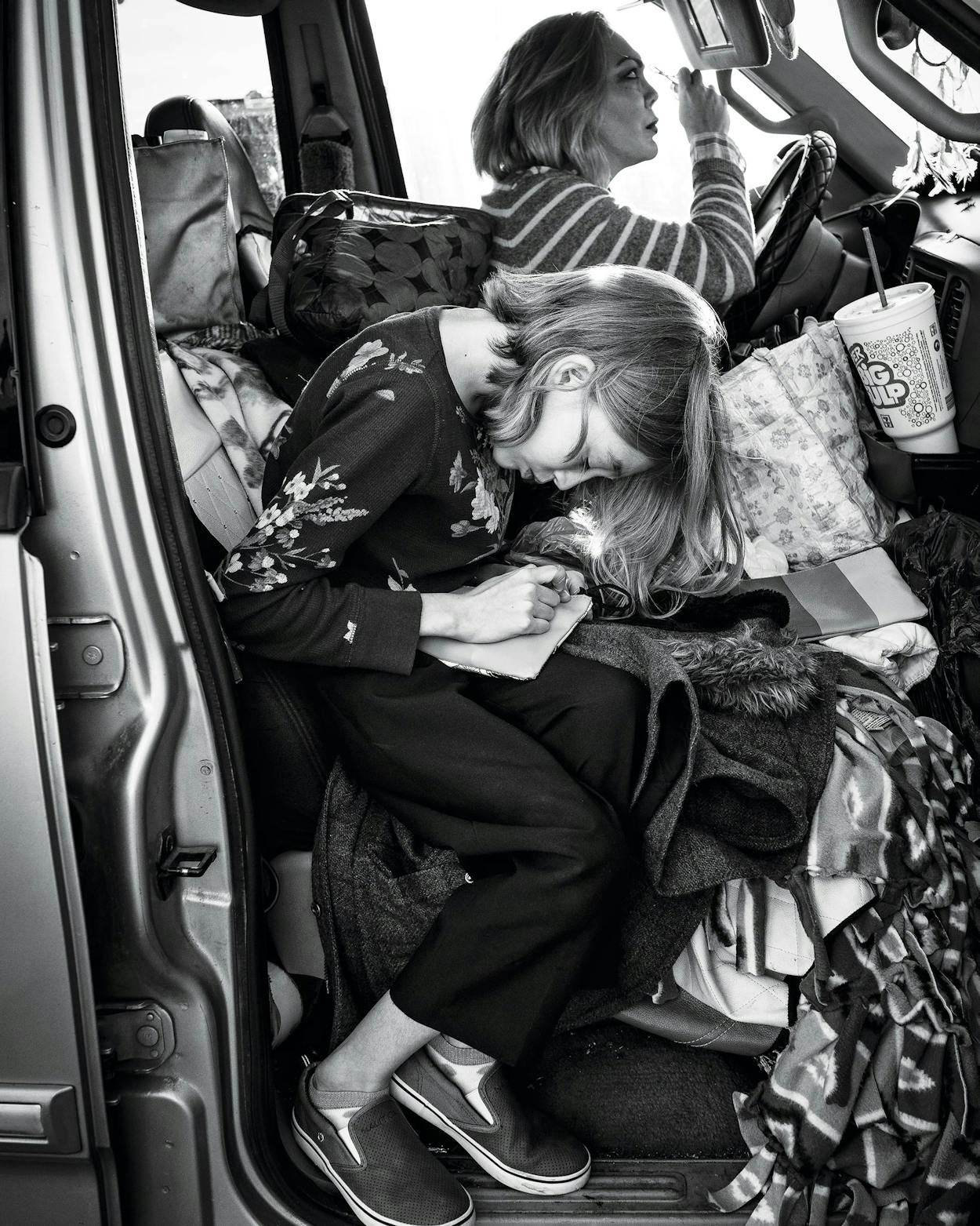It starts with car problems, an emergency medical procedure, or a lost job. If there are any savings, they go fast. There’s a missed payment or two, then a repossession or an eviction.
Obstacles overlap and compound quickly: once the car has been repossessed, getting to work can take hours, a commute that is tenable for only so long. With no income, rent goes unpaid. With no fixed address, filing for unemployment and applying for jobs become impossible.
Parents experiencing homelessness are faced with even greater challenges. In addition to figuring out where their families might sleep on any given night—maybe a car if it’s not too cold out, maybe a motel if it is, maybe a shelter if there’s room, maybe the street if there’s no other choice—parents also need to get their kids to school.
“Sometimes school is the only stable part of these kids’ lives,” says photographer Richard Sharum, who for more than two years chronicled the day-to-day of families in Dallas without fixed addresses. “A lot of these families have lost everything, so getting a child to school on time becomes one of the most important moments of the day.”
At the Family Gateway shelter in downtown Dallas, where Sharum spent most of his time, nearly all the children attend public school. The U.S. Department of Education estimates that more than 230,000 public-school students in Texas did not have a “fixed, regular, adequate nighttime address” at some point during the 2017–2018 school year, the most recent period for which data is available. That’s about 3 percent of public-school students in the state. More than half those students were “doubled up,” meaning they shared a residence with another family. About 20,000 were staying in hotel or motel rooms, and about 20,000 were residing in shelters. More than 50,000 were described as “unsheltered.”
These children and their parents shared their lives with Sharum—the pivotal moments and the mundane. Despite the circumstances, over and over, he photographed kids just being kids. And he photographed parents trying to do what almost all parents try to do: what’s best for their children.
Most of the parents he met through Family Gateway were either employed or actively looking for jobs. Some had medical issues that prevented them from working. Others could not work because they were caring for children with special needs who required full-time supervision. “These families have experienced things that could happen to almost anyone,” Sharum says.
As the coronavirus crept across Texas and the state’s unemployment rates rose to almost 14 percent, Sharum continued shooting, capturing new layers of isolation and institutionalization. He watched as the pandemic aggravated the labyrinthine bureaucracies parents encounter as they try to apply for jobs, file for unemployment, and provide for their families.
“I’ve seen people spend hours on the phone on hold, just trying to talk to someone about getting new birth certificates because theirs were lost during an eviction,” Sharum says. “They might be on hold for three hours before the line just disconnects. That’s not rare at all.”
Family Gateway, a nonprofit organization that accepts donations and welcomes volunteers, operates one of a few family-friendly shelters in the Dallas area, and even before the pandemic, every room was occupied most nights of the year—during peak times, overflow space was needed. Now more Texans are likely to experience homelessness. Data collected by the U.S. Census Bureau in mid-November indicates that over 700,000 Texans are facing eviction or foreclosure through January 2021. (The federal moratorium on evictions that protected tenants from September through December has since been extended.)
After the pandemic, as so many of us attempt to restart our normal lives, many of these families will still be rebuilding theirs.
“I’m so glad you could join me today.”
A six-year-old girl gazes into an imaginary camera lens.
“Hello, guys,” she says. “Welcome back to my channel. My name is Kadyn, but you can call me Kay-Kay.”
She smoothly explains that in today’s video, she’ll be reviewing slime. It’s mid-February 2020, three weeks before COVID-19 will change life for everyone here. A few feet away, in their cramped room at Family Gateway’s shelter, Kadyn’s mother, 25-year-old Whitney Bryant, cracks up. “I don’t know where she gets this stuff,” Bryant says.
Kadyn has dreams of becoming a YouTube star. Her mom often sees her walking around, talking to herself as if she’s streaming to millions of followers. Sometimes Kadyn introduces her audience to a doll or stuffed animal, or she’ll share a lesson from school: a few words in Spanish, a few numbers in Chinese. She’ll tell her public a joke she’s heard, like “Girls go to college to get more knowledge. Boys go to Jupiter to get more stupider.”
Recently, her segments have featured a friend Kadyn has made at the shelter: seven-year-old Miracle.
“Of course, you guys know Miracle,” Kadyn says. “She’ll be joining us for today’s video.”
Miracle wants to be a TikTok star, so when they finish filming the YouTube clip, the girls begin shooting an imaginary TikTok video of themselves dancing to a song nobody else in the room can hear. The dance involves a lot of flailing feet.
Kadyn is the oldest of Bryant’s four kids. The youngest is three weeks old. In the mornings, before the bus arrives to take her to school, Kadyn often picks out clothes for the infant. When she gets home, she’ll hold the baby for a while to give her mom a break.
“She can sense when I’m struggling,” Bryant says.
Sometimes it’s tense, with five of them living in a single room in a noisy shelter. It can all feel like too much, Bryant says: a lost job, an eviction, car trouble, family problems—on top of all the worries that come with raising young kids. Her thoughts race, and she has difficulty focusing.
Then she hears Kadyn making another video.
“Welcome back, guys. I’m so glad you could join me today.”
“We won’t be back.”
Patrick Buckner wasn’t used to doing his twelve-year-old daughter Devaiyah’s hair. The first few times, it took him more than three hours. Now he has it down to a science. As he stands behind her in their room at Family Gateway’s shelter, his fingers turn so fast they’re hard to track. With machinelike proficiency, he takes a tuft and twists it into a perfect curl.
All the while, he tells the story of how they got here—a story Devaiyah has never heard before. She’s sitting in a chair, tapping the screen of an old iPad Buckner’s mother gave them, playing a colorful game called Tiles. When Buckner begins gesturing, Devaiyah silently reaches for one of his hands and places it back on her head.
He and Devaiyah’s mother split up when she was a baby, and he didn’t return to his daughter’s life until she was eight, when he learned she was in foster care. He petitioned for custody and flew to Tennessee to get her, to bring her back to Texas to live with him.
“When I saw her smile,” he says, “I’d never felt anything like that.”
He loved being with Devaiyah. He loved playing basketball with her, watching her make tiny clothing for her dolls, and seeing her grades rise from F’s to A’s and B’s. He even came to love twisting his daughter’s hair into tiny curls.
He felt guilty for all the years he hadn’t been around. He wanted to give her everything: a nice apartment with nice furniture, internet, and a good television with cable. He couldn’t afford it all working at a fast food restaurant, and the bills piled up.
They lost the apartment, the furniture, and the TV. They’ve been homeless for more than a year. Buckner had a job at UPS until last March, when he was laid off. Devaiyah goes to school in Richardson. Buckner says it’s important to keep some things consistent.
Sometimes they walk to the library and look for books to read together. Other days they take a train to run errands. Some days they stay in their room and Buckner does Devaiyah’s hair as she taps away on the iPad.
“We’ll be out of here soon,” he says, gesturing emphatically. “We won’t be back.”
Without looking up from the screen, Devaiyah grabs his hand and returns it to her head.
“I never thought I’d be without a home.”
Seated on a brown couch in a corner of the living room in his new apartment in North Dallas, Patrick Johnson, 49, watches a college football game on TV featuring two teams he doesn’t care about. He never imagined life like this.
This couch is where Johnson’s four children, the youngest eight and the oldest fourteen, curl up to gaze into the glow of their phones. It is often a garage for toy race cars; other times, it’s where the family eats dinner. On a Saturday morning when the kids are still asleep, the couch is where Johnson can watch the fuzzy broadcast of a football game.
That TV is one of the few things he took from his last apartment, the home his family shared for eleven years. Clothes, blankets, a few important documents, and this television.
Johnson worked in the Richardson Parks and Recreation Department, emptying public trash cans. In March, Johnson says, when the pandemic brought Texas to a standstill, he was told his services were no longer needed. He says his wife, to whom he was married for 25 years, told him something similar—she left him to take care of the kids by himself.
He missed his rent payment in April. Then again in May and June. In July, a few days after the nationwide moratorium on evictions expired, the property manager told him he needed to vacate.
He couldn’t take his table or his couch. He couldn’t take his dishes or his microwave. Most of what he left went into the trash.
At first, the five of them lived with Johnson’s sister. Then, when his unemployment payment came through, the family moved to a cheap motel in North Dallas. A few weeks later, they came to Family Gateway’s shelter, one of the few in Dallas that don’t separate families. (In most shelters, men and women sleep in different parts of the building.) He remembers his kids telling him to stop crying.
After a few weeks at the shelter, the family moved into their current apartment. For a few months, Family Gateway will cover their rent as part of the shelter’s “supportive housing” assistance. Then Johnson will be expected to pay an increasingly greater share. When he’s got his head above water, he’ll cover the full amount.
“We’ll never take anything for granted,” he says. “I never thought I’d be without a home.”
Now, though, the family has a place of their own again. Somewhere the kids can see their friends again. Patrick Johnson and his family have a new start.
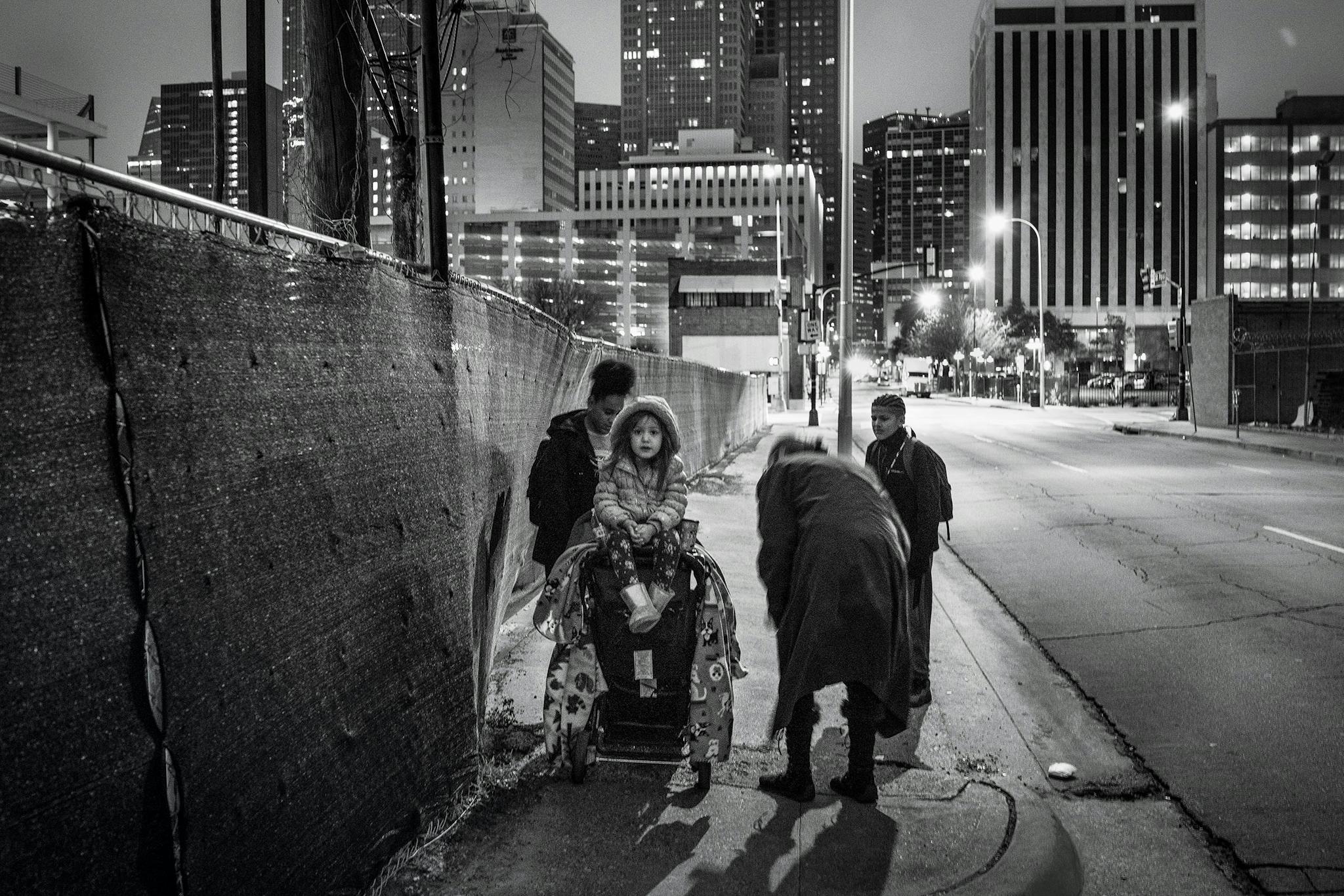
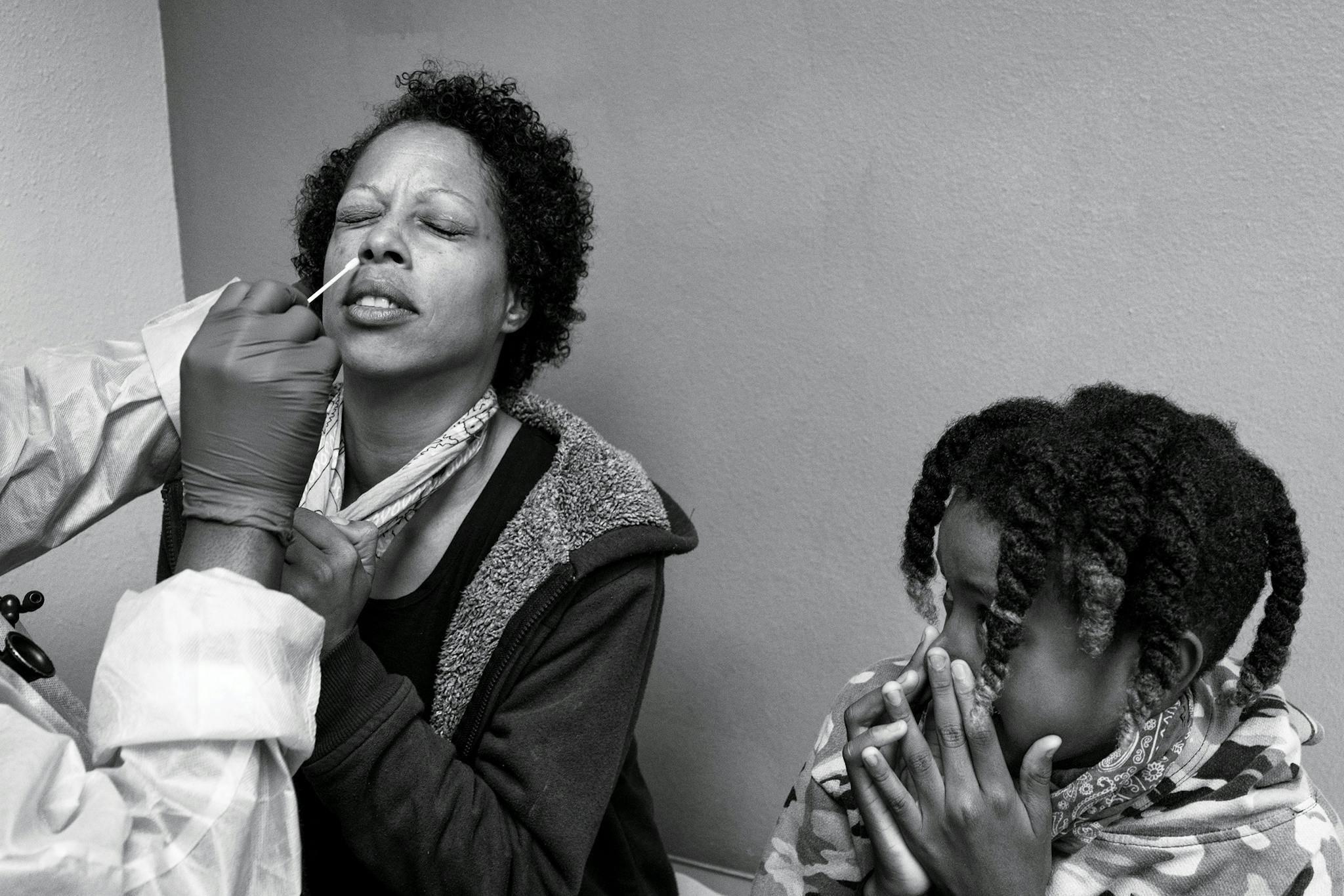
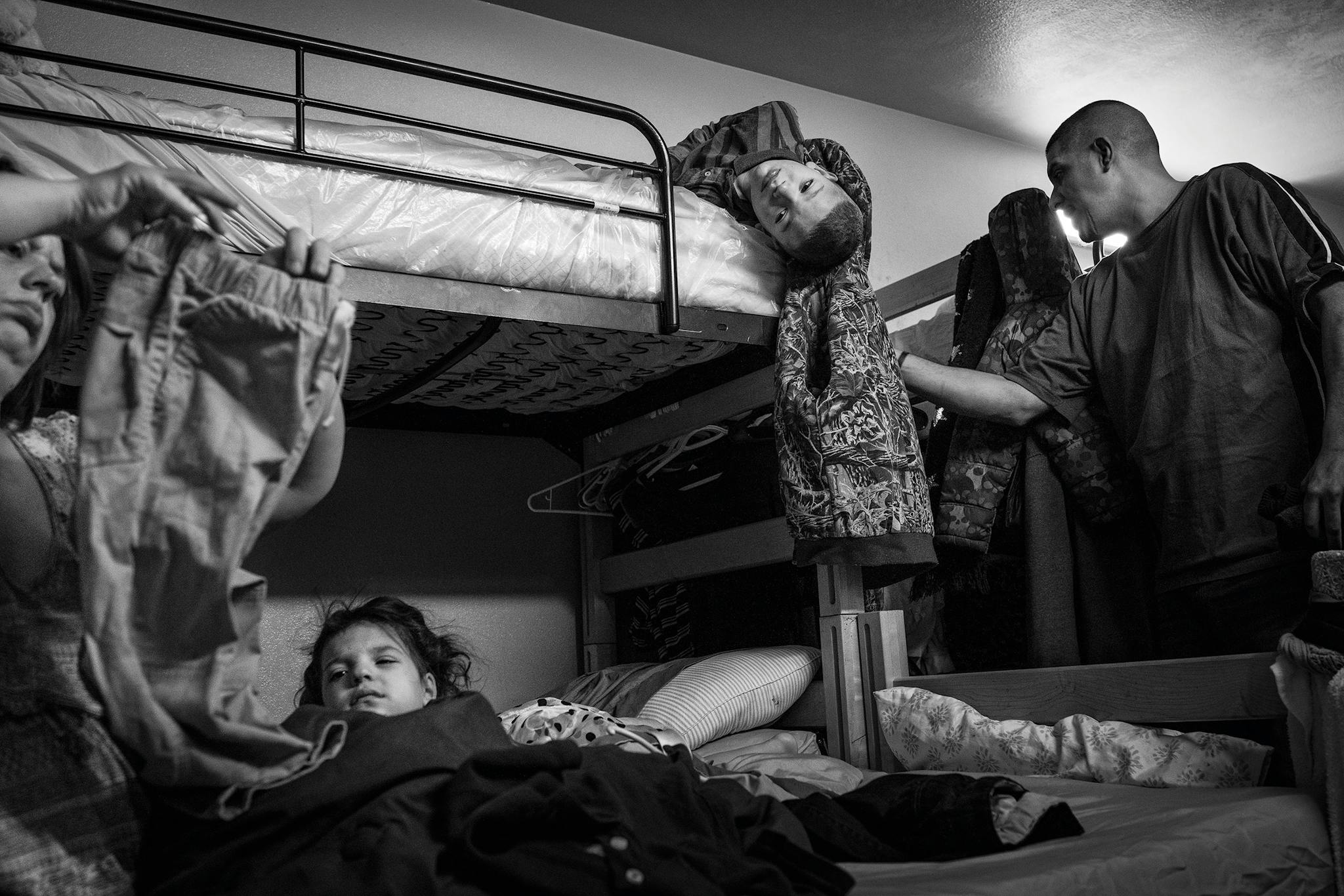
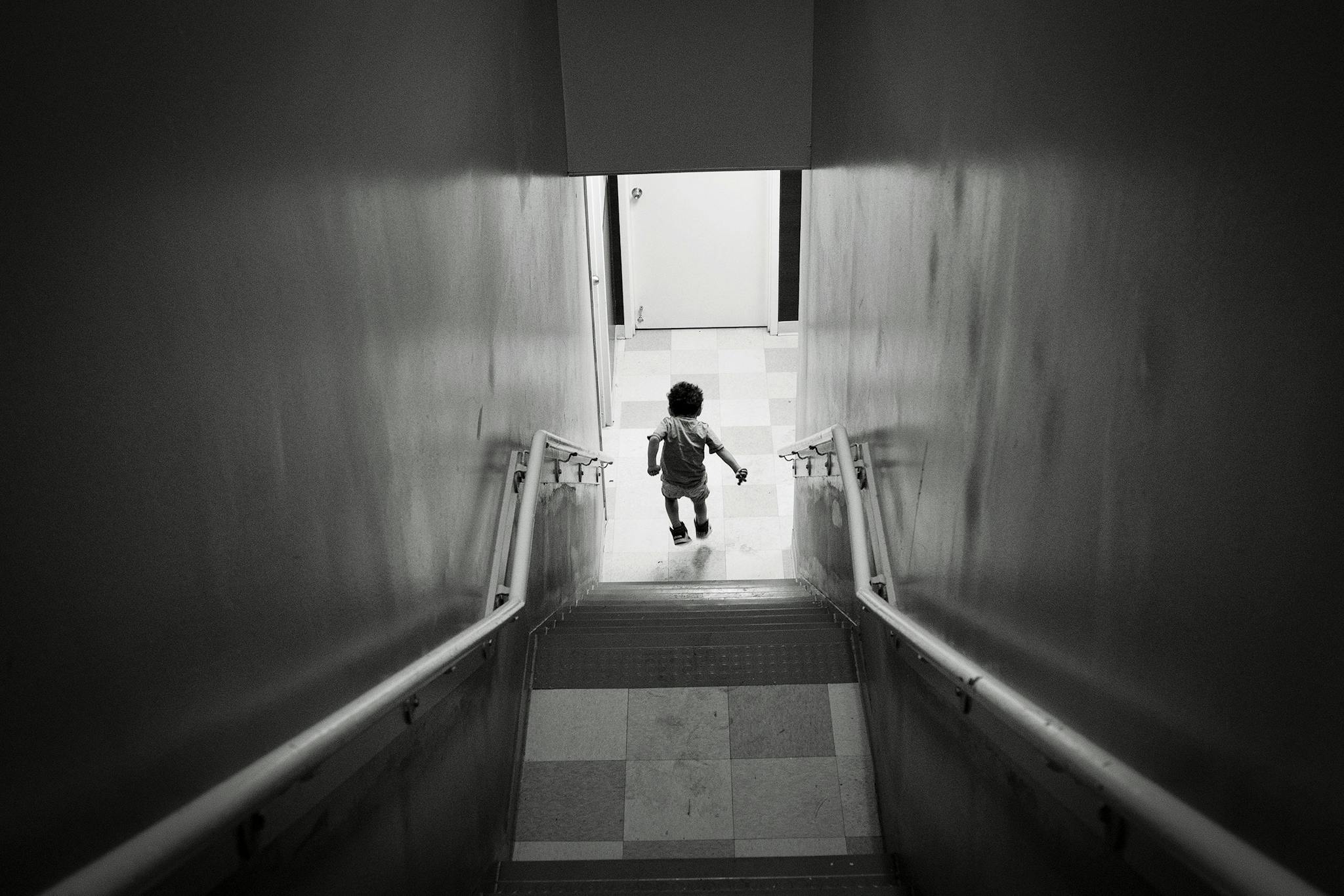
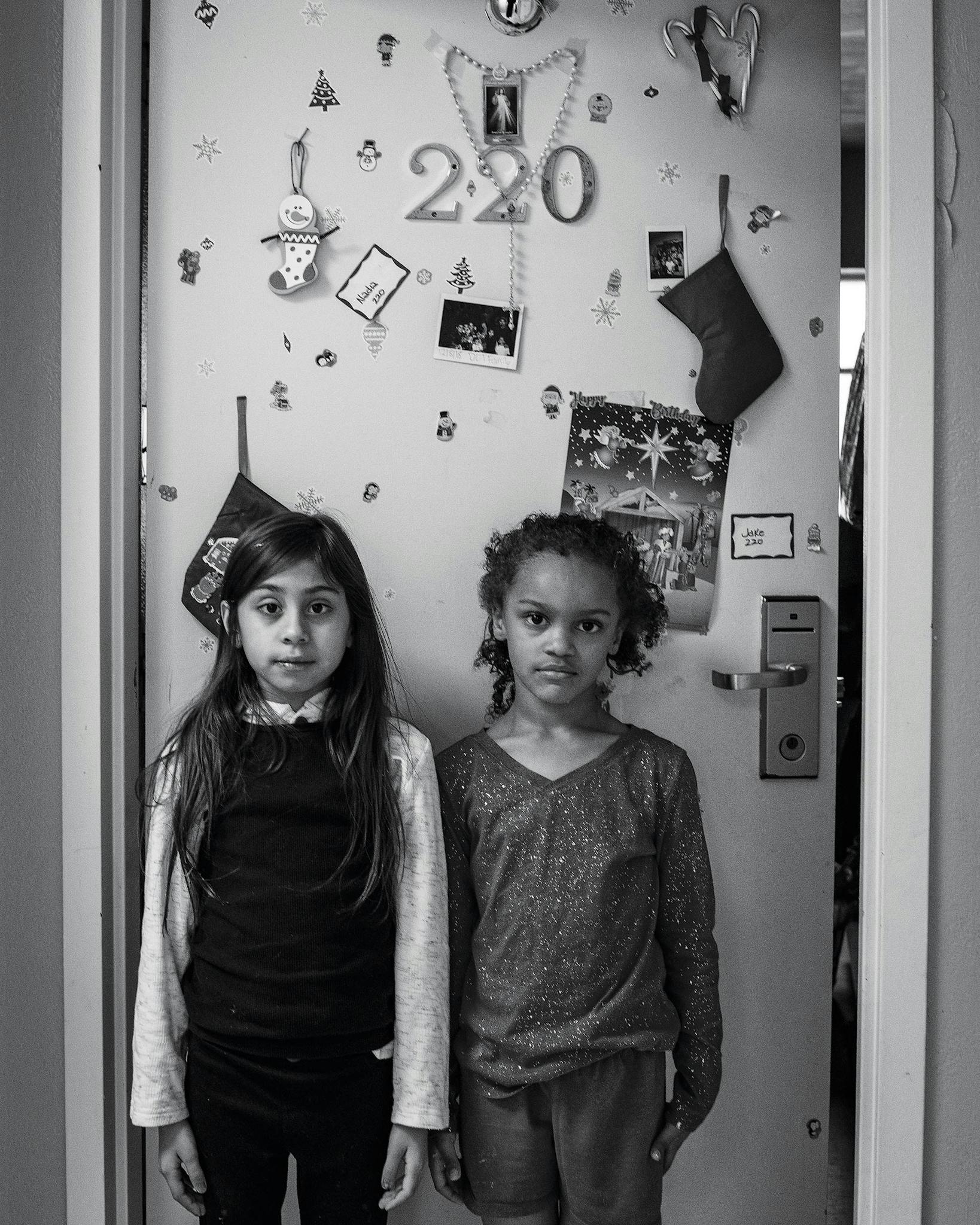
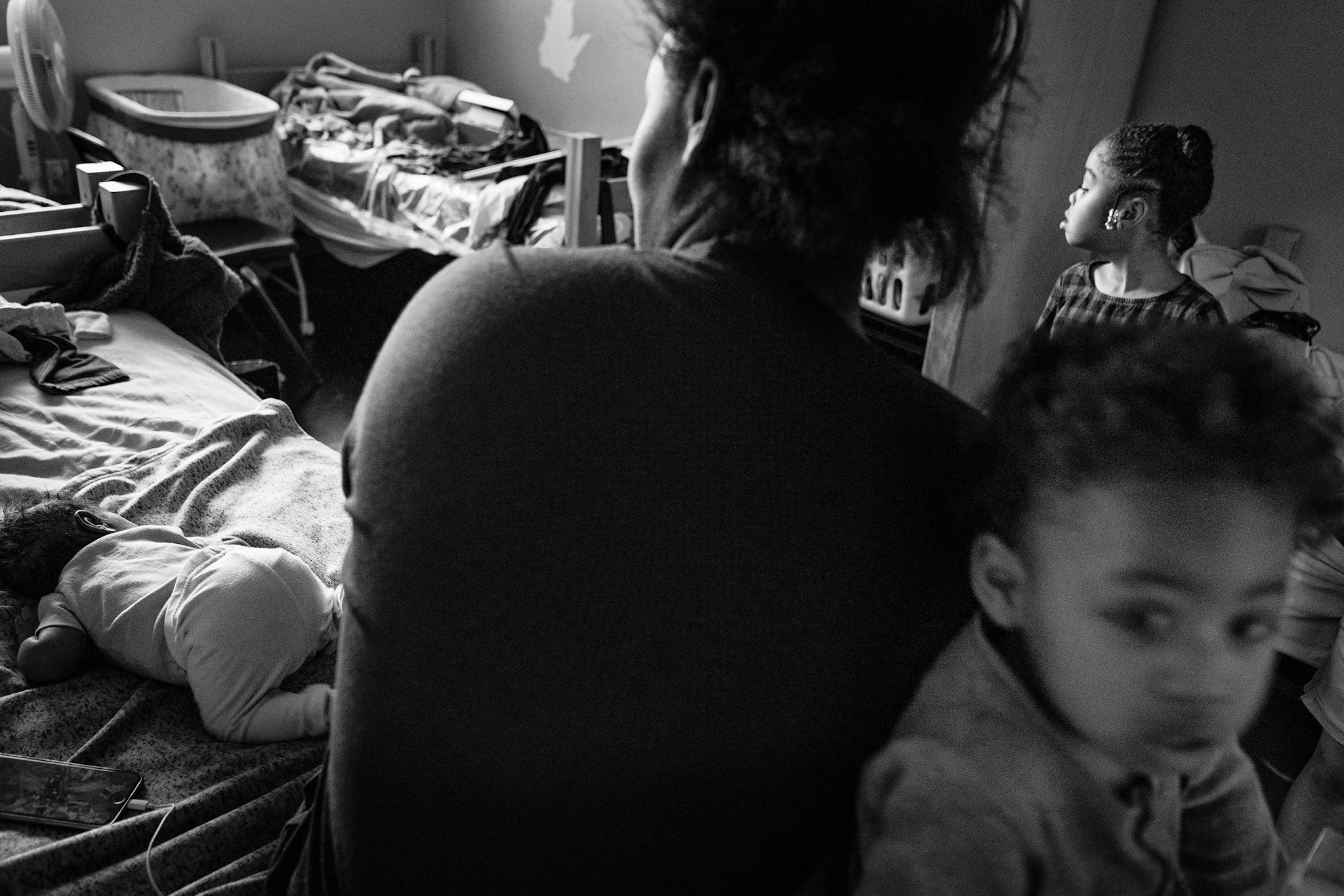
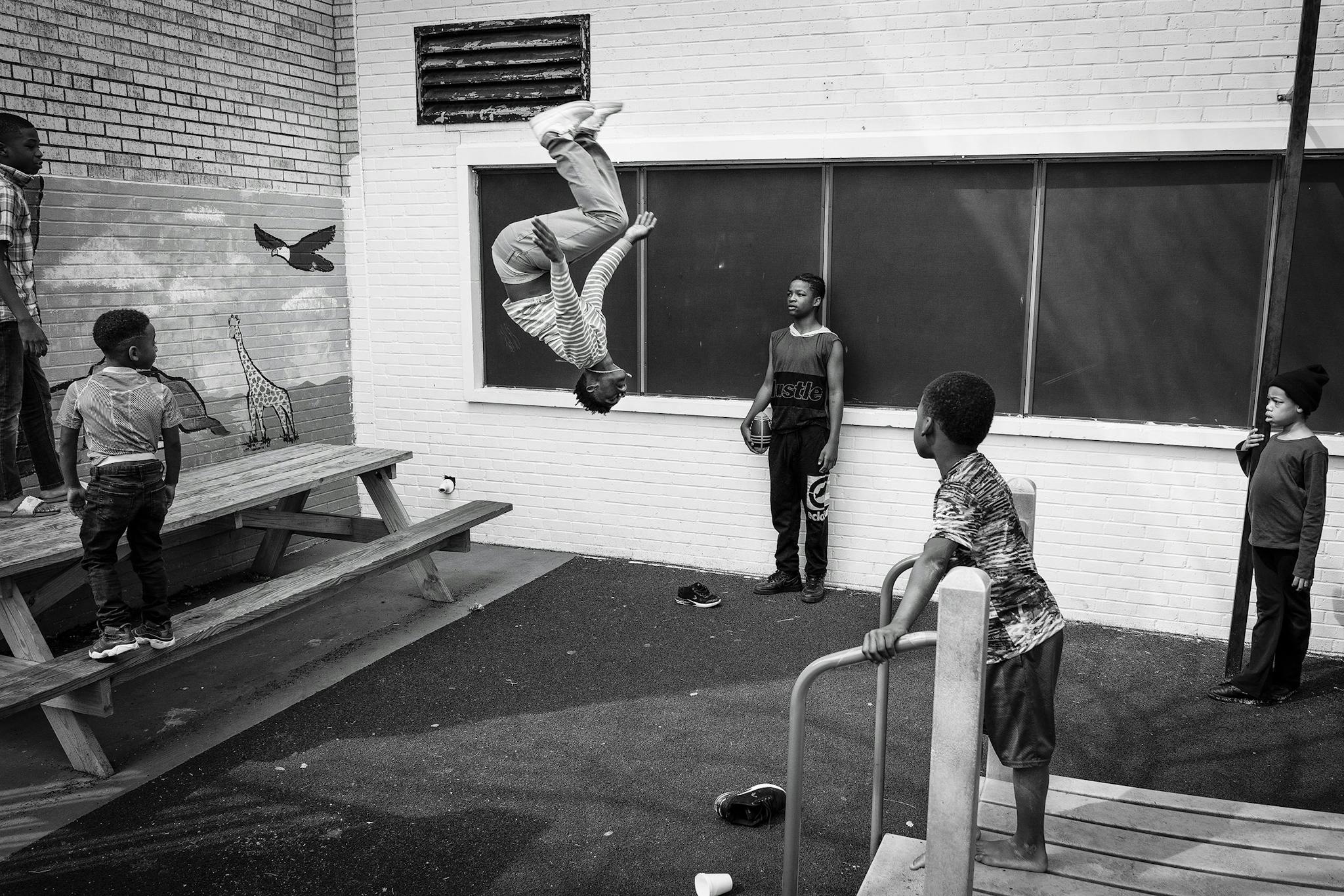
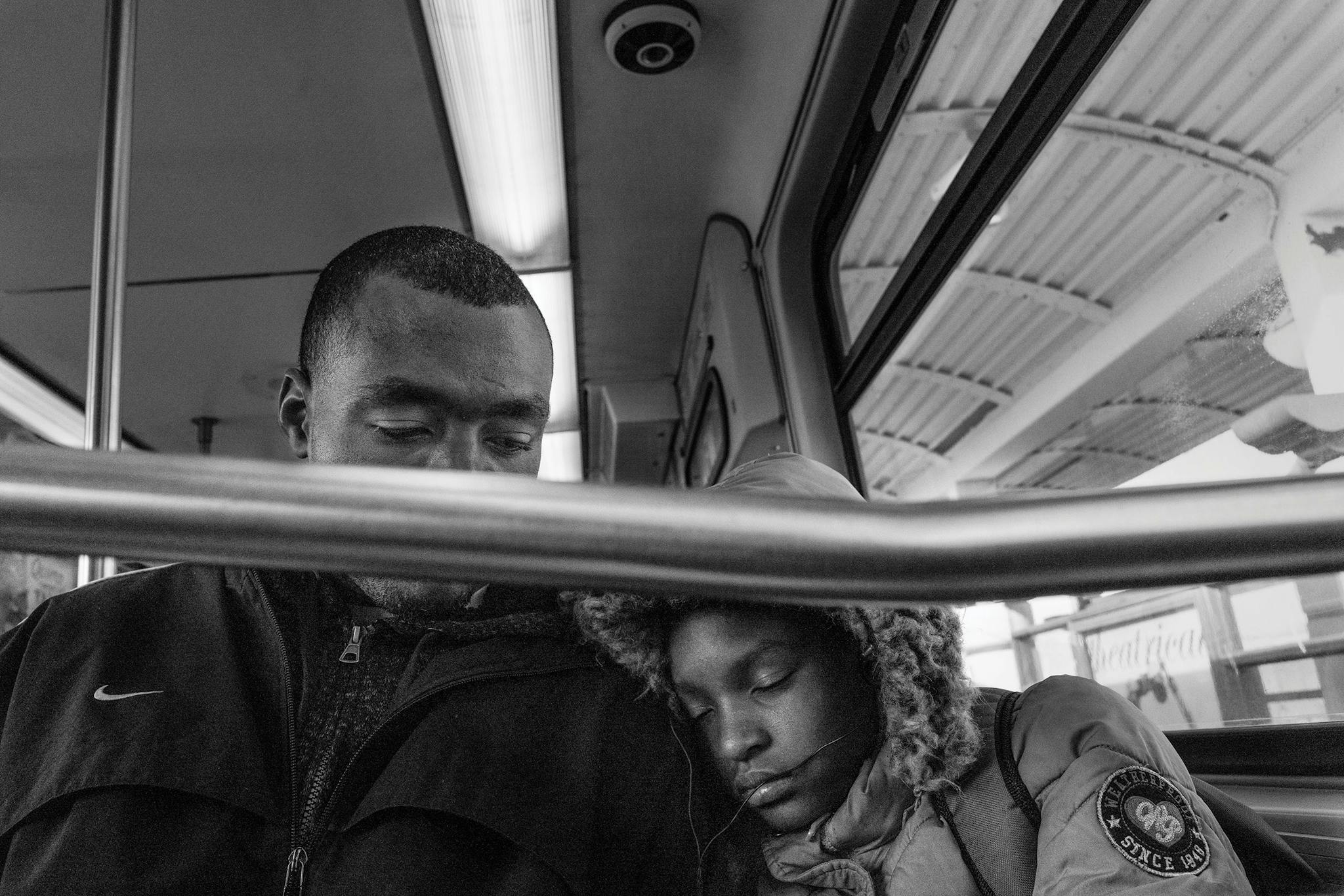
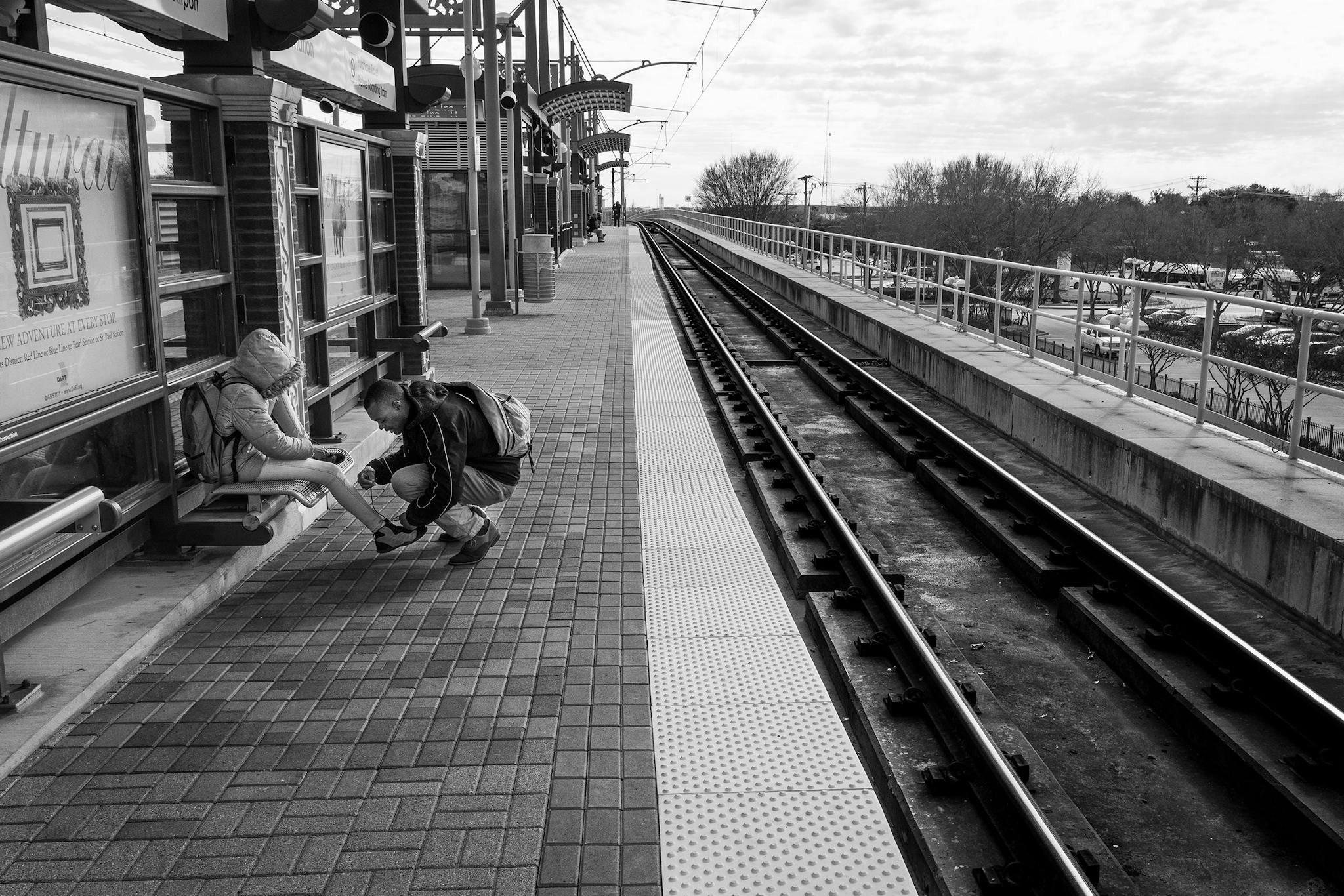
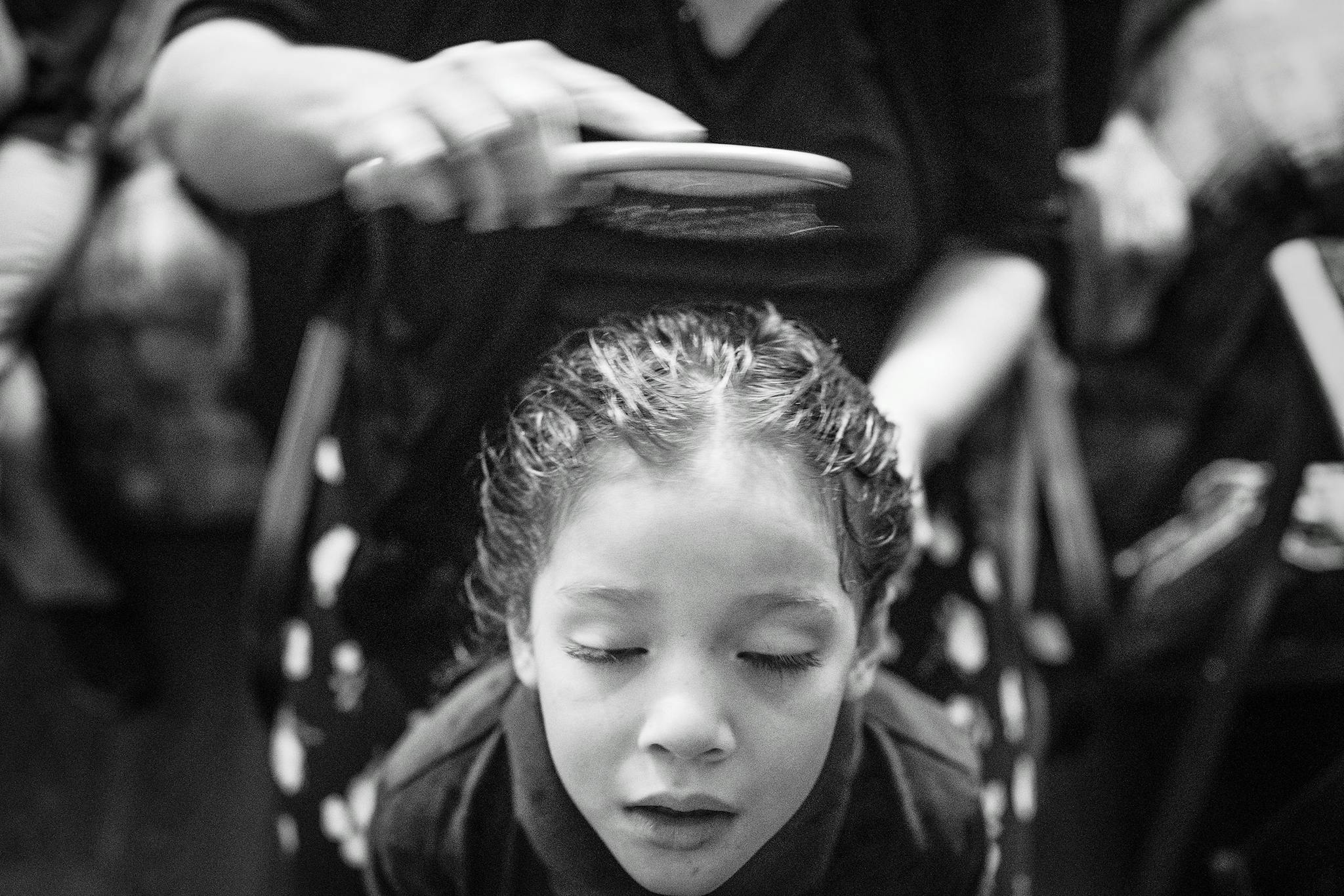
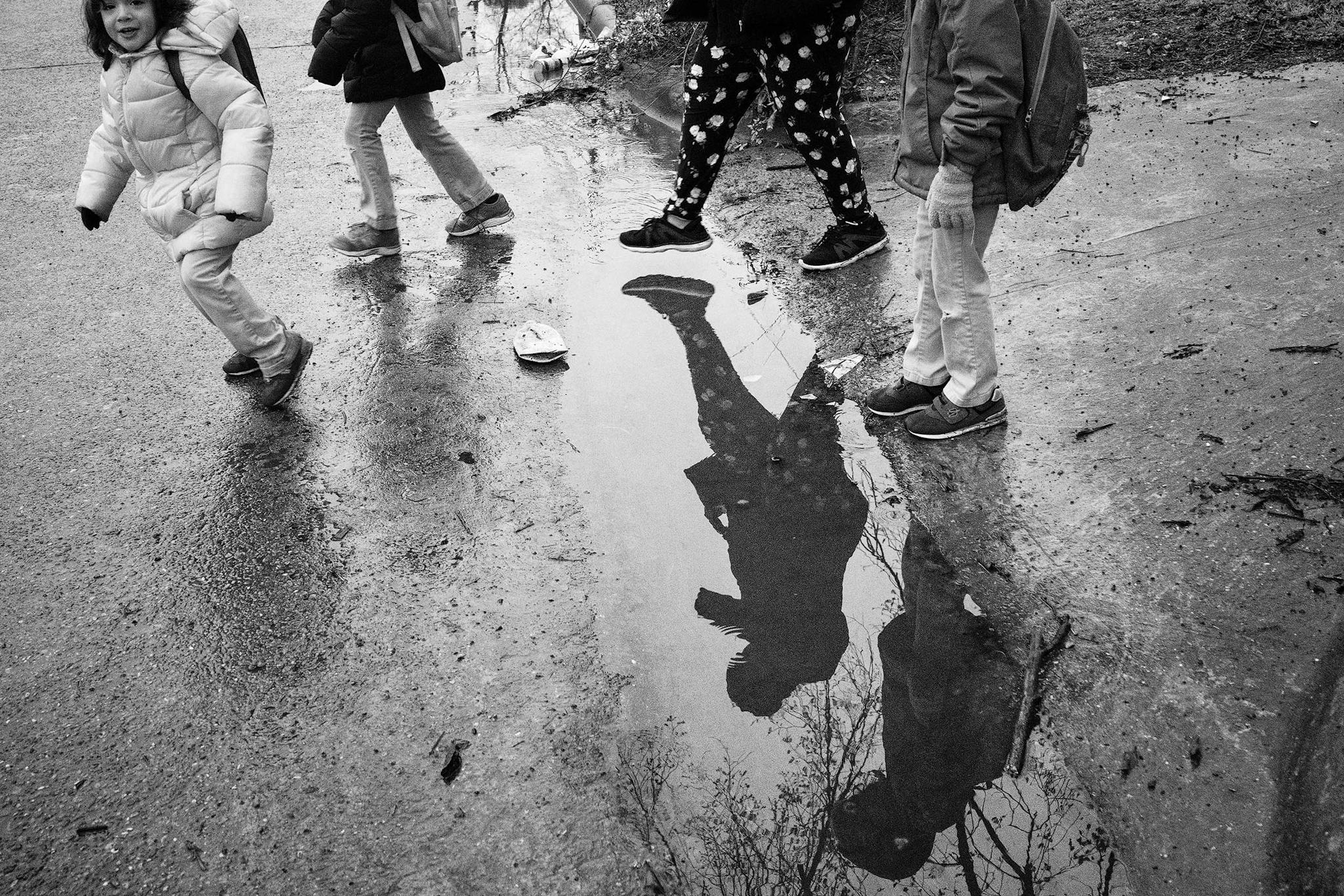
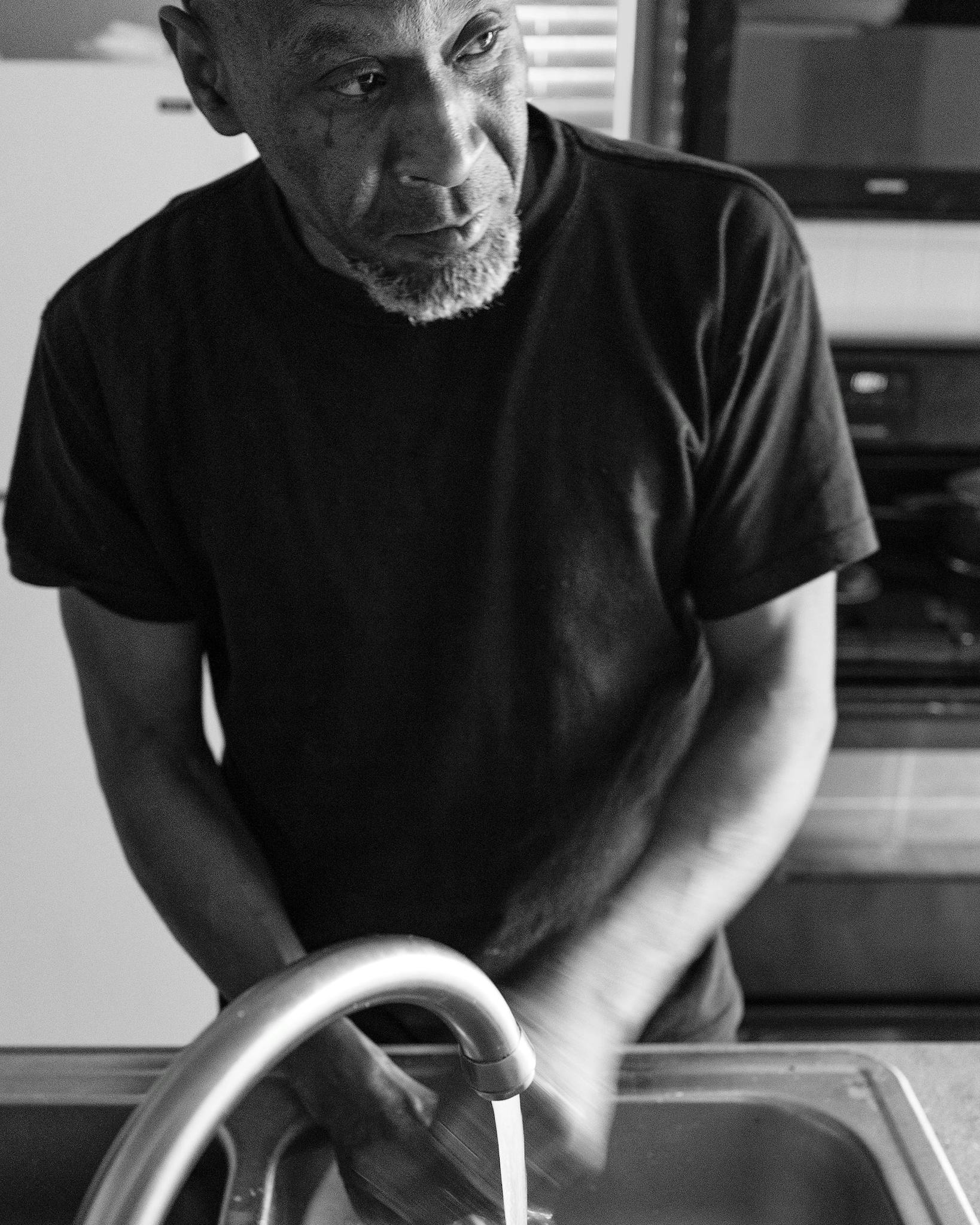
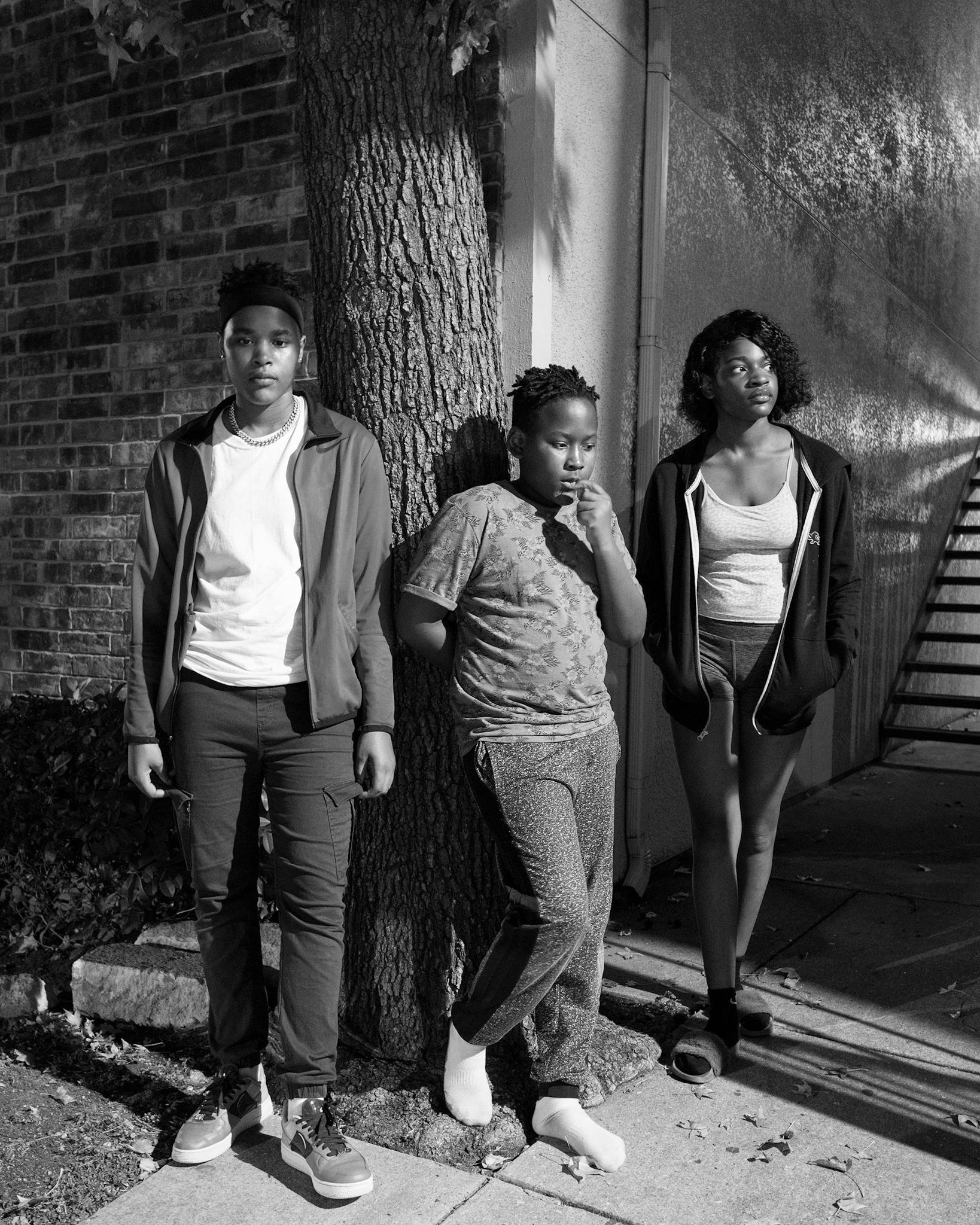
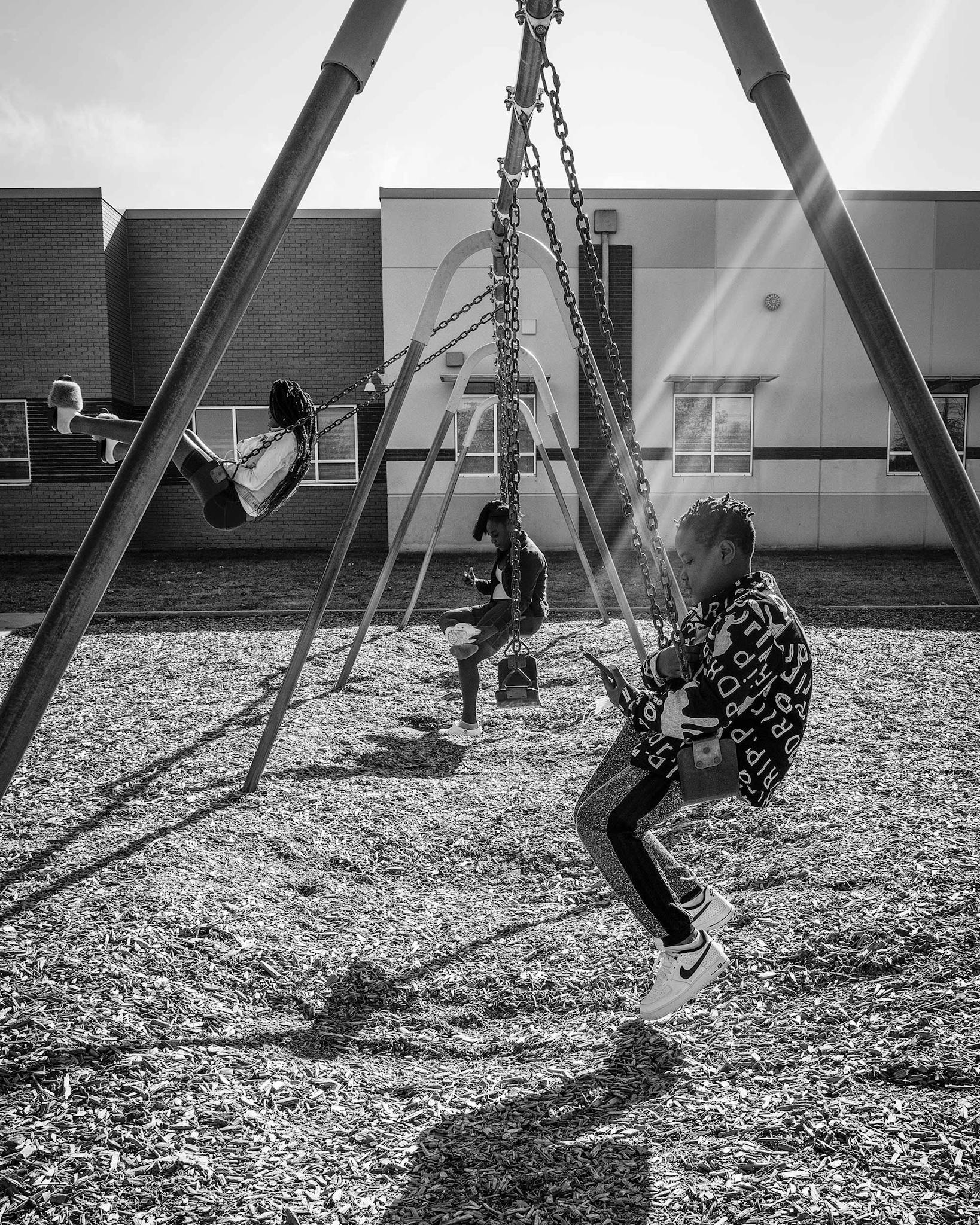
This article originally appeared in the February 2021 issue of Texas Monthly with the headline “The Unsheltered.” Subscribe today.
- More About:
- Homelessness
- Dallas
